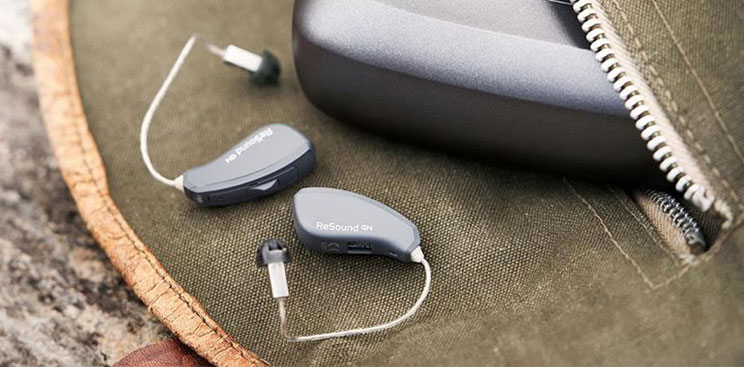Hearing Aids That Are Rechargeable

Hearing aids are essential tools to effectively deal with hearing loss on a daily basis. Nowadays, with the rising cost of batteries, hearing aid manufacturers have developed rechargeable hearing aids. These do not need to have their batteries replaced and can be easily recharged. Although handy, these hearing aids require special care in order to operate them.
Hearing aids that can be recharged enable you to enjoy hours of hearing freedom. Contemporary hearing aids currently have in-built rechargeable batteries as a default, so it is important to know the difference between hearing aids that have rechargeable batteries versus ones that do not.
In older hearing aid models that used silver-zinc batteries, the battery doors used to be placed on the back side of the hearing aid. Modern hearing aids now have lithium-ion batteries which do not contain any battery door. This is because these hearing aids last just as long as their in-built batteries do.
The previous concerns with rechargeable batteries for hearing aids were that they tended to be unreliable and the batteries needed frequent recharging. Nowadays, battery technology has significantly improved and a single recharge can enable users to enjoy a full day’s power on their hearing aids.
It is important to keep certain things in mind when operating rechargeable hearing devices. They generally contain wires that enable charging. These wires may be present on the hearing aids or on the charging docks. Never tug on these wires of your hearing aids since this may cause them to malfunction and disrupt their charging point. Do not let small children or pets get a hold of these wires since they may damage their charging capacity.
Hearing aids generally dislike dirt and moisture to begin with, but this is the case even more with rechargeable hearing aids. Since these hearing aids have a charging point, they need to be kept consistently dry as well as immaculately clean at all times. Even a small amount of dust can disrupt their chargeability. Always clean your hearing aids thoroughly before putting them on charge.
The longevity of the battery life of your rechargeable hearing aids depends on how consistently you place them on charge. Always remember to store your hearing aids directly on their charging station whenever they are not being used. This will enable them to recharge and maintain a good battery life, as well as keep them safe. You can place the charging station right next to your bed on a bedside table so that it is convenient for you to access your hearing aids and also remember to put them on charge when not in use.
If your hearing aids still use silver-zinc batteries, these need to be replaced periodically. You do not need to worry about battery replacement for lithium-ion batteries since these are much more long lasting and usually last as long as your hearing aids continue to work.
Always charge your hearing aids regularly, even when they are not in use, in order to keep their batteries in top shape. If you are not going to be using your hearing aids for extended periods of time, make sure to remove them from their charging station and store in them in an air tight container in a cool and dry place. This will prevent any moisture or dirt from collecting and keep your hearing aids safe.
Lithium-ion batteries are quick to charge, thus you will only require a period of around 3 to 4 hours each day in order to charge your hearing aids. This charging period will give you enough power for a full 24 hours, depending on the types of features your hearing aids have. With so much convenience, it is no wonder that rechargeable hearing aids are now the latest trend in hearing aids!
